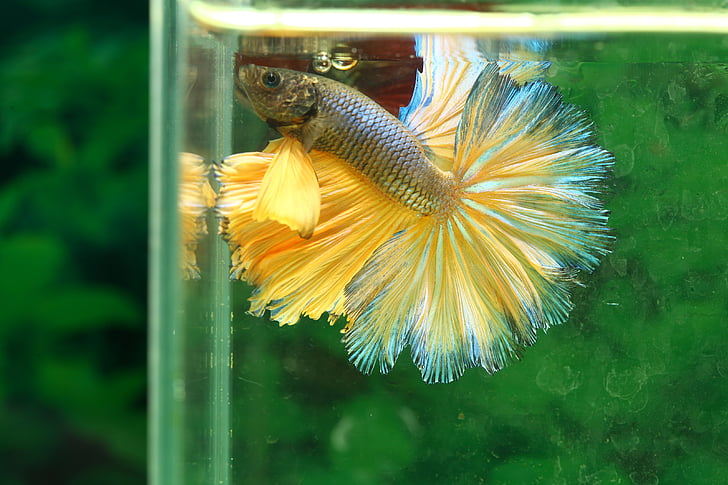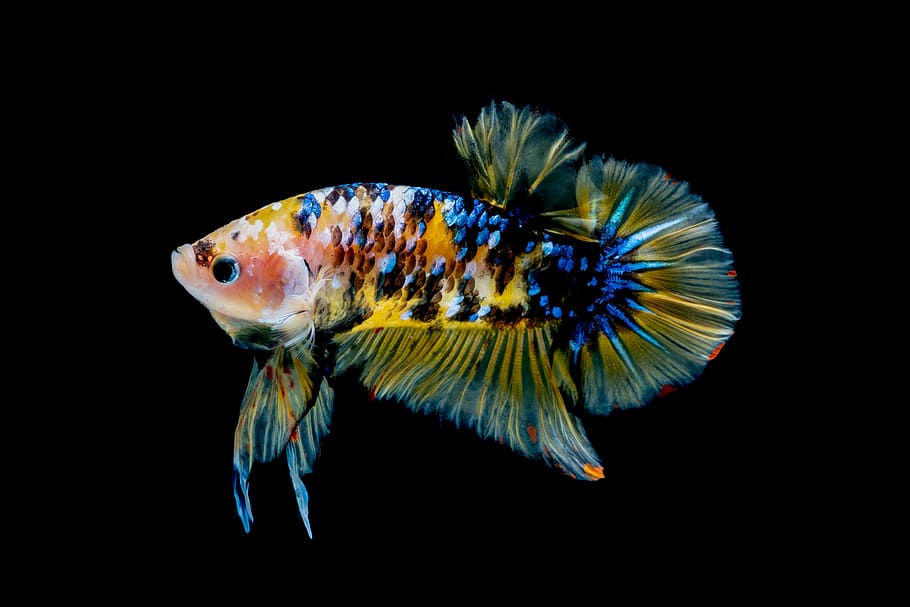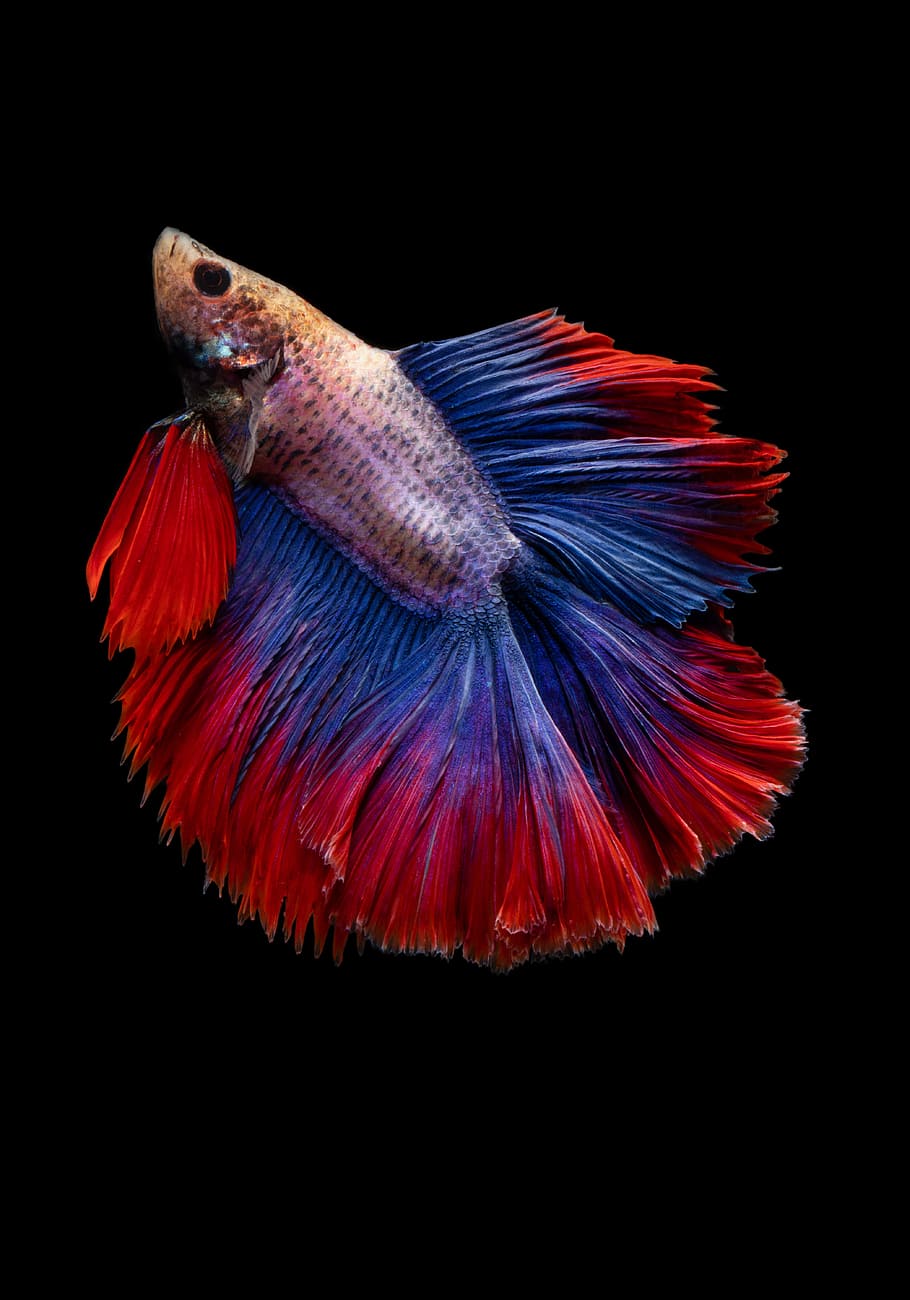Are you interested in keeping a betta fish as a pet? Look no further! This article will guide you through the essential care for your betta fish. From setting up the perfect tank environment to ensuring a healthy diet, we’ve got you covered.
Learn how to maintain optimal water quality and prevent common diseases. Discover the behavioral and enrichment needs of these beautiful creatures.
Get ready to provide the best care possible for your betta fish companion!
Tank Setup and Environment
To create a healthy environment for your betta fish, ensure that the tank setup meets their specific needs.
Start by installing a proper filtration system. Betta fish are sensitive to water quality, so a good filter will help remove waste and toxins, keeping the water clean and clear. Look for a filter with adjustable flow settings to prevent strong currents that might stress your fish.
Additionally, choose tank decorations wisely. While betta fish enjoy hiding spots, it’s important to avoid sharp or rough decorations that could damage their delicate fins. Opt for smooth, natural-looking decorations like live plants or soft silk plants that mimic their natural habitat.
Creating a well-balanced and comfortable environment will contribute to the overall health and happiness of your betta fish.
Feeding and Nutrition
Make sure you’re feeding your betta fish a balanced diet to keep them healthy. Betta fish have specific nutritional requirements that need to be met in order for them to thrive. Here are some important points to consider when it comes to feeding your betta fish:
- Feeding schedule: It’s crucial to establish a consistent feeding schedule for your betta fish. Feed them small meals 2-3 times a day, taking care not to overfeed.
- Protein-rich diet: Betta fish are carnivorous and require a diet rich in protein. Choose high-quality betta fish pellets or flakes that contain a good amount of protein.
- Variety of foods: While pellets or flakes can be the main part of their diet, it’s important to also offer a variety of foods such as frozen or live brine shrimp, bloodworms, or daphnia.
- Vegetable matter: Betta fish also benefit from some vegetable matter in their diet. You can supplement their diet with blanched peas or small pieces of cucumber.
- Avoid overfeeding: Overfeeding can lead to obesity and other health issues. Only feed your betta fish what they can consume within a couple of minutes.

Water Quality and Maintenance
Maintaining proper water quality is essential for the health and well-being of your betta. To ensure the water in your betta’s aquarium is clean and suitable for their needs, regular water testing and the use of aquarium filters are crucial.
Water testing allows you to monitor important parameters such as pH levels, ammonia, nitrite, and nitrate levels. These parameters directly affect the overall health of your betta fish. By regularly testing the water, you can identify any imbalances and take the necessary steps to correct them, ensuring a healthy environment for your betta.
In addition to water testing, using aquarium filters is vital for maintaining water quality. Filters help to remove debris, excess food, and waste, preventing the build-up of harmful substances. They also aid in the circulation and aeration of the water, promoting oxygenation and reducing the risk of oxygen depletion.
By implementing regular water testing and utilizing aquarium filters, you can provide your betta with a clean and healthy environment, promoting their well-being and longevity.
| Parameters | Ideal Range |
|---|---|
| pH Level | 6.5 – 7.5 |
| Ammonia | 0 ppm |
| Nitrite | 0 ppm |
| Nitrate | < 20 ppm |
Betta Fish Health and Disease Prevention
Regular monitoring and preventive measures are essential for keeping your betta fish healthy and preventing diseases. To ensure the well-being of your betta fish, here are some important steps to follow:
- Maintain proper water parameters: Regularly test the water for pH, ammonia, nitrite, and nitrate levels to ensure they’re within the appropriate range.
- Provide a balanced diet: Feed your betta fish high-quality pellets or flakes specifically formulated for bettas. Supplement their diet with occasional treats like freeze-dried or live foods.
- Avoid overfeeding: Overfeeding can lead to obesity and other health issues. Feed your betta fish small portions two to three times a day.
- Keep the tank clean: Regularly clean the tank by performing partial water changes and removing any uneaten food or debris.
- Avoid overcrowding: Betta fish are solitary creatures and prefer to live alone. Avoid keeping them with aggressive tank mates to prevent stress and potential injuries.

Behavioral and Enrichment Needs
To keep your betta fish happy and engaged, provide a variety of toys and decorations in their tank. Enrichment activities are essential for betta fish as they help stimulate their natural behaviors and prevent boredom.
Betta fish are intelligent creatures that need mental stimulation to thrive. You can provide them with floating toys, such as floating logs or plants, that they can swim through and explore. Adding live plants to the tank not only enhances the aesthetic appeal but also provides hiding spots and encourages natural behaviors like resting on leaves or exploring the roots.
Additionally, betta fish are social animals and benefit from social interactions. Consider adding a mirror to the tank for a short period each day to encourage your betta to display its natural behaviors and interact with its reflection.
Conclusion
In conclusion, proper care and attention are essential for maintaining the health and well-being of betta fish. By providing a suitable tank setup, ensuring a balanced diet, maintaining optimal water quality, and monitoring for any signs of illness or disease, you can help your betta thrive.
Additionally, understanding their behavioral and enrichment needs will contribute to their overall happiness and longevity. Taking these steps will help ensure a scientifically informed approach to betta fish care.

